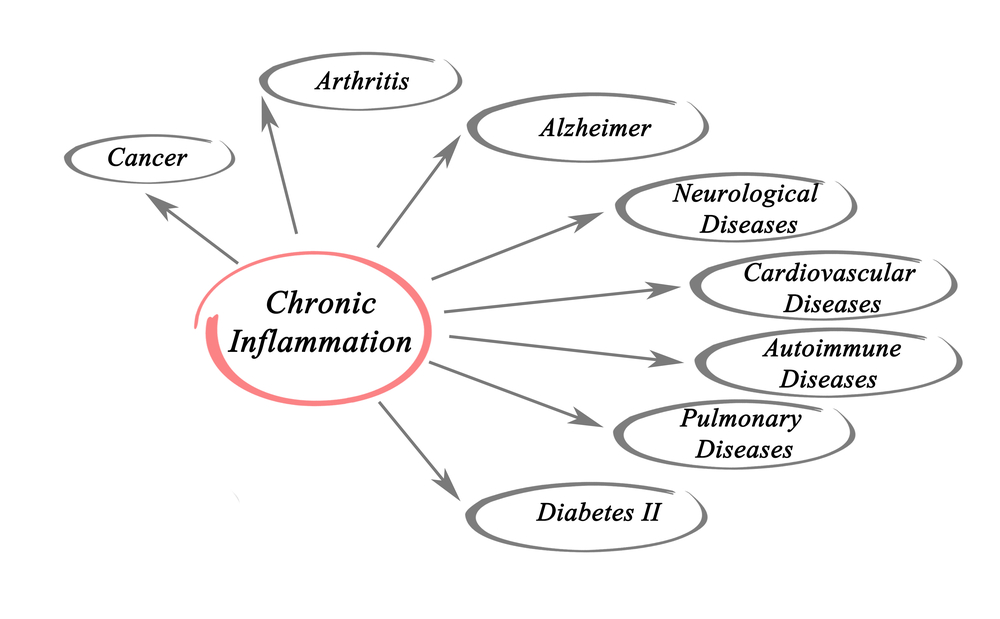Improve your health with simple lifestyle changes, and find out more about how genes and the environment interact to affect health.

Genes are the basis of heredity but aren’t set in stone. You can change how your genes express themselves through your actions, the foods you eat, and the environment you surround yourself with, leading to better health and greater longevity than your genetic makeup suggests. This article will explain how gene expression works and how you can alter it to stay healthy, no matter what challenges life throws you.
Did you know that our health depends on our environment? Healthy gene expression relies on input from the external environment. So, health starts within your surroundings.
Environmental stressors influence how your genes express themselves.
For example, gene expression determines why you may develop certain diseases like cancer, type 2 diabetes, or multiple sclerosis later in life and why they might affect you differently than other family members.

Genes and the environment are two sides of a coin. They interact to determine your health, personality, and overall well-being.
They both are essential in making you who you are today, but we will discuss how they affect our lives.
Therefore, we depend on good external conditions to maintain good health.
What is Epigenetics?
The interaction between genes and the environment is known as epigenetics. Epigenetics is any process that affects how a gene’s expression works, including turning genes on or off.
Genes affected by the environment express themselves in a way that can be positive or detrimental.

Genes and Environment Stressors
Environmental stressors like chemicals, toxins, diet, light cycles, and temperature can interrupt healthy gene expression.
This varies from person to person. Hence, when exposed to the same environmental stressors, some people get sick while others do not.
Interaction Between the Environment and Genes
Gene-environment interactions are an exciting breakthrough in genetics. Labs like Fred Hutch are working to stop cancer by finding ways to regulate gene expression. The future is bright!
You can’t talk about genes without discussing the environment. Genes are essentially the blueprint for an organism’s development but are not entirely determinative.
Environmental factors affect how your genes express themselves. They can trigger certain genetic switches in your body and cause severe illness or disease.
For example, individuals who share their DNA with those with a family history of cancer are more likely to develop the disease.
This is because environmental stressors (like smoking) can turn on specific cancer-causing genes within their bodies, even though these people would otherwise be able to fight off tumors successfully.
Gene-Environment Interaction Examples:
The interaction between genes and the environment can affect the same trait. For example, a smoker who acquires lung cancer would have an environmental factor causing the disease.
Still, their genetic makeup may increase their risk of other genetic disorders such as breast cancer or Parkinson’s disease.
Heredity Influences
Heritability is the proportion of population variability attributable to genetic factors rather than environmental factors or random chance.
Are you curious about genetic testing? Find out if you carry genes for breast cancer or Alzheimer’s disease (and more) with a genetic test from 23andMe.
Environmental and Genetic Factors
Environmental factors include any influence on an organism’s phenotype after being born.
This includes diet, nutrition, and other aspects like exposure to pathogens or toxins (disease-causing agents).
Genes and Obesity
Obesity is when the body has accumulated too much fat, potentially reducing the average lifespan and triggering additional health issues.
The most frequent causes of obesity are higher dietary energy consumption, a lack of exercise, and a hereditary predisposition.
The environment within our bodies and the external environment are crucial for determining how genes are expressed.
Depending on the type of interaction present, these interactions can upregulate or downregulate gene expression.
Diet is an essential environmental factor in preventing obesity, inflammation, and diseases.
However, a diet full of additives, preservatives, and inflammatory fats cannot support a healthy gut. Read more about gut health and immunity here.

Genes, Environment, and Human Health
The interaction of genes and the environment is critical in human health, particularly in the case of diseases that are not strictly genetic.
For example, the incidence of heart disease among those who eat a diet high in saturated fats (animal fats) is much higher than among those who do not.
And yet some people with genetically predisposed hearts can avoid becoming ill by changing their diet.
But for most people, it can be challenging to change their lifestyles enough to avoid becoming sick if they have a terrible genetic predisposition toward developing some illness like cancer or diabetes.
Diabetes and Gene Expression
Sometimes, one’s genetic makeup can make one more susceptible to a condition like diabetes.
However, environmental factors can also affect your body and cause you to develop the disease. And, if you have a family member with diabetes, your chances of developing it yourself are higher than they would be otherwise.
The risk increases because genetics play a role in determining whether or not someone develops this disease and how severe it will be when they do develop it.
Genes and Autoimmune Diseases
Autoimmune diseases are a group of diseases caused by the immune system attacking healthy cells in the body.
Some autoimmune diseases, such as rheumatoid arthritis and type 1 diabetes, can be life-threatening.
Autoimmune diseases result from an overactive immune system and mistakenly attack the body’s cells.
The outcome is often inflammation. This inflammation can damage tissues or organs throughout your body. Autoimmune disorders occur when antibodies attack tissues in your body that they recognize as foreign invaders (called antigens).
Some autoimmune symptoms can improve or cease altogether by changing your environment and lifestyle. Learn how Dr. Terry Wahls treated her multiple sclerosis by improving her environment with diet and other therapies.
Read Next: Preventing Your Autoimmune Symptoms with Diet

Chronic Illnesses, Genes, and the Environment
Chronic illness is a disease that lasts for more than three months.
Most chronic illnesses result from a combination of genetic and environmental factors. In other words, your genes load the gun, and the environment pulls the trigger.
While you can’t change your genes, you can take steps to minimize exposure to environmental triggers. And in some cases, you can even change how your genes express themselves.
How Genes and Gut Health Interact
Gut health isn’t just about bacteria. The gut microbiome also contains yeasts and other microbes in your gastrointestinal tract. These tiny organisms help you digest food, maintain immune health, and regulate your body adequately.
The gut microbiome is a complex ecosystem influenced by diet, environment, and genetics. For example, your genes may influence your body’s response to certain foods or medications, affecting your gut microbiota composition.
Poor gut health is becoming more common due to overusing antibiotics, stress, and a modern diet of processed foods.
A measure of good health is a healthy gut. Conversely, an unhealthy microbiome is the first step to many chronic diseases.
More importantly, the gut microbiome affects mental health by influencing neurochemicals like serotonin. A healthy gut can also lower inflammation, leading to depression, anxiety, and many other diseases.
Gut health is an indicator of environmental health. There has never been a better time to focus on improving your environment. Do you have an unhealthy microbiome?
Genes, Environment, and Mental Health
As we already discussed, both environmental and genetic factors influence mental health.
However, one often overlooked significant factor is the influence of the environment on mental health.
This includes any experience or exposure that impacts our brain and its functioning. Research shows that gene variations lead to mental health issues like depression and schizophrenia (1).
Stress, trauma, abuse, nutrient-depleted diet, and drug use are environmental conditions linked to mental health issues.
While specific stressors are out of our control, we do have control over what goes into our bodies. For example, a nutrient-dense diet can significantly affect physical and mental health.
“If environmental risk factors for [mental illness] can be validated and confirmed, there is every reason to expect they will point to preventive measures that lower their risks and morbidity.”–Alan Brown, Columbia University Medical Center

Improve Gene Expression with a Sustainable Lifestyle
It is undeniable that sustainable living improves health.
Sustainable living is good for your health, the planet, and your family. A sustainable lifestyle helps people live in harmony with nature.
The term encompasses various practices, including zero-waste living, organic gardening, reusing products, recycling, and conserving water to minimize waste. Growing your own food is a great way to live more sustainably.
Anyone can live more sustainably. Most importantly, making efforts towards a more natural way of living will improve your health and protect our planet for future generations. A great place to start is grocery shopping!
Key Takeaways about Gene-Environment Interaction and Health
The environment is a massive part of who we are and how we develop. Genes alone do not determine everything about us, but they do play a role. It’s important to remember that people are more than just their genes.
We are all products of the environments in which we live, and our genes influence that environment and vice versa.
In other words, no matter what your genetic makeup is like, there’s always something you can do to make yourself healthier or happier through lifestyle choices like what you consume, the products you use, exercise, and social interactions with others around you all day long.
References and Further Reading
- Schmidt, C. W. (2007). Environmental Connections: A Deeper Look into Mental Illness. Environmental Health Perspectives, 115(8). https://doi.org/10.1289/ehp.115-a404
- How Sustainable Living Improves Health





